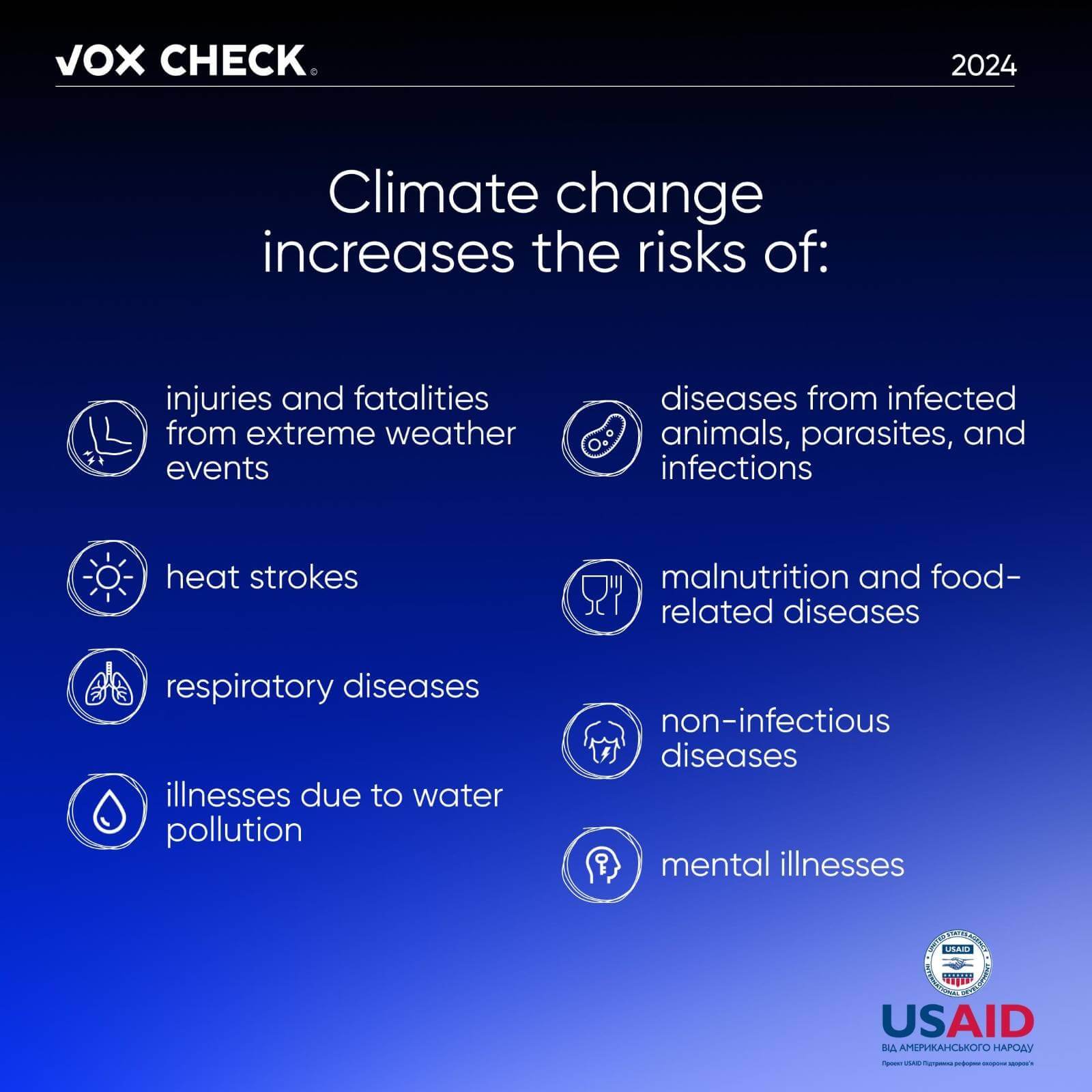Propagandists often spread conspiracy theories about the activities of the World Health Organization (WHO). This time, they claim that the organization wants to exacerbate global hunger by prohibiting farmers from producing food. Allegedly, farmers annually kill 8 million people through their activities.
With the support of the USAID Health Reform Support project, VoxCheck analyzes and refutes public health narratives spread in the information space of Ukraine, Belarus, and russia on a weekly basis.
Information is being spread online claiming that the head of the WHO wants to exacerbate hunger by freeing farmers from producing food. Allegedly, the organization has stated that farmers annually kill 8 million people. Farmers are to blame for causing climate change by producing food. At the same time, according to the organization’s data, more than 200 million people on the planet are starving, with 20,000 of them dying every day.
Screenshot of the post
What’s the reality?
Director-General of the WHO, Dr. Tedros Adhanom Ghebreyesus, indeed stated in his video address at the UN Climate Change Conference on December 21, 2023, that over 30% of greenhouse gas emissions are attributed to the food sector, increasing the risks of various diseases. According to the Food and Agriculture Organization (FAO) of the United Nations, this includes emissions related to food processing and transportation, livestock, food consumption and household waste, energy used in agriculture, land use, and agricultural cultivation.
However, he did not accuse farmers of this, let alone of killing 8 million people. In reality, the head of the WHO noted that “If [countries’] food systems delivered healthy diets for all, we could save 8 million lives per year.” The main point of his address was that the food sector needs to transform by transitioning to healthy, diverse, and more plant-based diets.
This does not mean that farmers will be prohibited from producing goods. On the contrary, the agro-industry continues to receive support from the UN. The issue of hunger is indeed worsening, especially in African countries. According to the UN, in 2023, an average of 787 million people faced hunger. This is nearly 200 million more people than in 2019 before the COVID-19 pandemic. The reasons cited include ongoing wars, the climate crisis, and rising prices for seeds and fertilizers.
The exacerbation of malnutrition problems in the world is also a consequence of climate change. 3.6 billion people already live in regions highly vulnerable to climate change. It is expected that between 2030 and 2050, climate change will cause approximately 250,000 additional deaths per year just from malnutrition, malaria, diarrhea, and heat stress. The direct health damage worldwide (excluding expenditures in health-determining sectors such as agriculture, water supply, and sanitation) is estimated at $2-4 billion per year by 2030.
Source: World Health Organization
So, the UN has programs supporting farmers’ households. For example, the weather risk insurance initiative for farmers, R4 Rural Resilience Initiative. As of 2022, R4 has benefited 400,000 vulnerable households in Bangladesh, Burkina Faso, Cuba, the Democratic Republic of the Congo, Haiti, El Salvador, Ethiopia, Guatemala, Kenya, Madagascar, Malawi, Mozambique, Nicaragua, Senegal, Zambia, and Zimbabwe. When crops are lost due to weather conditions or disasters, the program compensates for the losses, allowing households to preserve farmland and accelerate recovery, as well as invest in seeds, fertilizers, and new technologies.
The UN also supports Ukrainian farmers, providing grain for sowing in war-affected areas, assisting in demining farmland, and providing modular grain storage facilities.
Regarding plant-based diets, the WHO and the Ministry of Health of Ukraine include meat in the balanced diet system. The issue of transforming food systems is more about processed products from the mass food industry, excessive consumption of which leads to the accumulation of saturated and trans fats in the body. Thus, it is recommended to consume:
- no more than 10% — saturated fatty acids (fatty meat, dairy products, solid fats and oils such as butter, lard, palm, and coconut oils),
- no more than 1% — trans fats from industrially processed products as well as products from ruminant animals (baked and fried products, snacks, meat, and dairy products from ruminant animals such as cows, sheep, deer, goats, etc.).
Saturated and trans fats in the diet can be replaced with other nutrients: polyunsaturated fatty acids (fish, plant oils), monounsaturated fatty acids from plant sources (plant oils, nuts), or carbohydrates from foods containing natural dietary fiber (whole grains, vegetables, fruits, and legumes).
This information piece was produced with the assistance of the United States Agency for International Development (USAID), provided on behalf of the people of the United States of America. This article’s content, which does not necessarily reflect the views of USAID, the United States Government, is the sole responsibility of Deloitte Consulting under contract #72012118C00001.
Attention
The authors do not work for, consult to, own shares in or receive funding from any company or organization that would benefit from this article, and have no relevant affiliations





